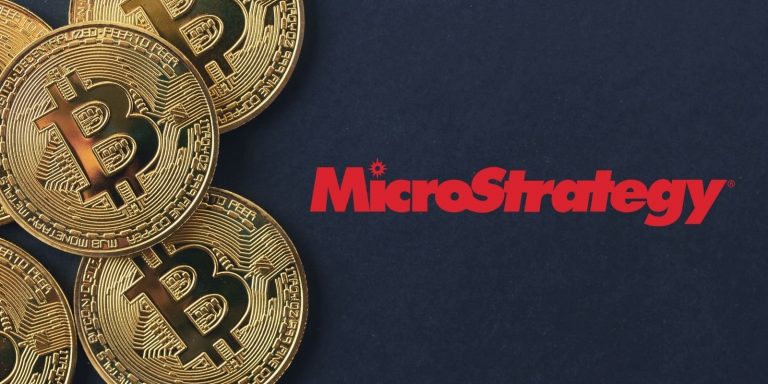
Gemini, a cryptocurrency exchange, launched tokenized shares of MicroStrategy (MSTR) for its European Union customers. These tokens, issued on the Arbitrum blockchain, allow 24/7 trading of MSTR stock, bypassing traditional market limitations like restricted trading hours and high fees for international investors. Gemini partnered with Dinari, a tokenized securities provider, to ensure liquidity, transparency, and economic rights equivalent to the underlying stock.
More tokenized stocks and ETFs are planned for release soon. This move reflects a broader trend of integrating blockchain with traditional finance, though tokenized equities are not yet available in the U.S. due to regulatory hurdles. The launch of tokenized MicroStrategy (MSTR) stock by Gemini has several implications for investors, markets, and the broader financial ecosystem, particularly in the context of the divide between traditional finance (TradFi) and decentralized finance (DeFi).
Tokenized MSTR stock allows European investors to trade shares 24/7 on the Arbitrum blockchain, bypassing traditional market constraints like trading hours and geographic restrictions. This democratizes access to U.S.-listed securities like MSTR, which is heavily tied to Bitcoin due to MicroStrategy’s significant BTC holdings. Retail investors in the EU, who may face high fees or barriers to trading U.S. stocks, gain a cost-effective way to invest in MSTR. The use of blockchain also enables fractional ownership, lowering the entry barrier for smaller investors.
Register for Tekedia Mini-MBA edition 19 (Feb 9 – May 2, 2026).
Register for Tekedia AI in Business Masterclass.
Join Tekedia Capital Syndicate and co-invest in great global startups.
Register for Tekedia AI Lab.
By tokenizing a traditional asset like MSTR stock, Gemini creates a hybrid financial instrument that operates within the DeFi ecosystem while representing ownership in a TradFi asset. This aligns with the growing trend of real-world asset (RWA) tokenization, where traditional securities are mirrored on blockchain platforms. Investors can leverage DeFi’s advantages (e.g., transparency, immutability, and low-cost transactions) while retaining the economic rights of traditional stock ownership, such as dividends or voting rights, as ensured by Gemini’s partner, Dinari.
Tokenized securities are currently limited to the EU due to stricter U.S. regulations around blockchain-based financial products. The U.S. Securities and Exchange Commission (SEC) has not yet fully embraced tokenized equities, creating a jurisdictional divide. This restricts U.S. investors from participating in this market, potentially slowing the adoption of tokenized assets globally. It also highlights the regulatory lag in integrating blockchain with traditional markets, which could stifle innovation in major financial hubs like the U.S.
Tokenization reduces intermediaries (e.g., brokers, clearinghouses) by leveraging blockchain’s decentralized infrastructure. This could lower transaction costs and settlement times compared to traditional stock trading. As Gemini plans to tokenize more stocks and ETFs, this could spur competition among exchanges to offer similar products, driving innovation in how assets are traded and managed. It may also pressure traditional exchanges to adopt blockchain technology to remain competitive.
MicroStrategy’s stock is closely tied to Bitcoin’s price, making tokenized MSTR a speculative asset within the crypto ecosystem. The 24/7 trading capability could amplify volatility, as investors react to crypto market movements in real-time. This could attract speculative traders, increasing trading volume but also heightening risk for investors unprepared for crypto-driven price swings. It may also draw attention from regulators concerned about market stability.
Centralized, regulated systems with intermediaries like banks, brokers, and exchanges. It prioritizes stability, investor protection, and compliance but is often slow, costly, and restrictive. Decentralized, blockchain-based systems emphasizing accessibility, transparency, and efficiency. However, it faces challenges like regulatory uncertainty, security risks (e.g., hacks), and limited mainstream adoption.
By offering a TradFi asset (MSTR stock) on a DeFi platform (Arbitrum), Gemini bridges these philosophies, combining TradFi’s structured asset class with DeFi’s technological advantages. However, the divide persists due to regulatory restrictions (e.g., U.S. exclusion) and differing investor mindsets. Heavily regulated with clear frameworks for securities trading, investor protections, and market oversight. DeFi operates in a regulatory gray zone, with fragmented global rules and ongoing debates about whether tokenized assets are securities, commodities, or something else.
The EU’s progressive stance on crypto (e.g., MiCA regulation) enables tokenized securities, while U.S. regulatory caution creates a geographic divide. This forces platforms like Gemini to limit offerings to specific regions, fragmenting the global market. TradFi relies on legacy systems like centralized clearinghouses and batch-processed settlements, which are slow and costly. DeFi uses blockchain for near-instant settlements, transparent ledgers, and programmable smart contracts.
By leveraging Arbitrum’s layer-2 blockchain, Gemini offers faster, cheaper transactions than traditional stock exchanges. This highlights DeFi’s technological edge but also underscores the challenge of integrating blockchain with TradFi’s infrastructure, which is not yet fully equipped for tokenized assets. TradFi dominant among institutional and retail investors due to familiarity, trust, and regulatory backing.
DeFi primarily adopted by crypto-native users and early adopters, with limited penetration among traditional investors wary of volatility or complexity. Tokenized MSTR appeals to crypto-savvy investors interested in Bitcoin exposure via MicroStrategy, but traditional investors may hesitate due to unfamiliarity with blockchain or concerns about counterparty risks (e.g., Dinari’s role as a liquidity provider).
The launch of tokenized MSTR stock by Gemini is a significant step toward integrating TradFi and DeFi, offering enhanced accessibility, liquidity, and efficiency for EU investors. However, it also highlights the persistent divide between the two systems, driven by regulatory, technological, and adoption barriers. While tokenized securities have the potential to reshape finance, their success depends on overcoming these challenges, particularly in harmonizing regulations and building trust among traditional investors.



